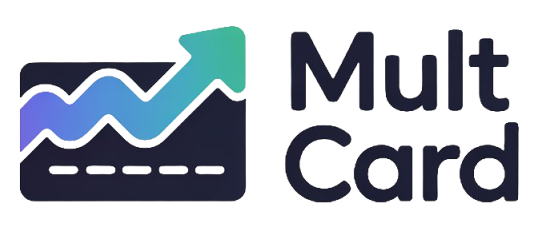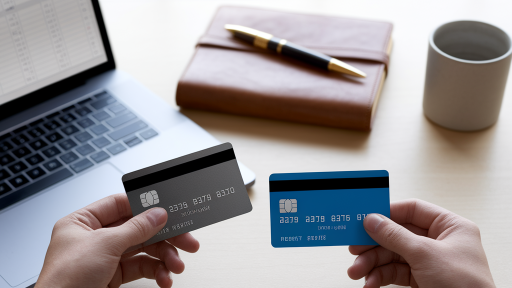Navigating the financial landscape of a growing business is a complex dance of managing expenses, tracking revenue, and planning for the future. For many entrepreneurs and small business owners, the lines between personal and professional finances can quickly become blurred, leading to accounting headaches and missed opportunities.
A business credit card is far more than just a convenient way to pay for supplies. When used strategically, it transforms into a powerful tool for financial management, growth, and security. Let’s delve into the seven key advantages that make a dedicated business credit card an indispensable asset for any company, from a solo startup to an established enterprise.
1. Establish a Clear Separation Between Business and Personal Finances
One of the most fundamental yet critical steps in professionalizing your business is to separate its finances from your own. Commingling funds—using a personal account for business expenses or vice versa—is a common mistake that can have significant negative consequences. A business credit card creates an immediate and clean line of separation.
Simplified Bookkeeping and Tax Preparation
When all your business-related purchases are on one card, tracking expenses becomes incredibly straightforward. Instead of sifting through personal bank statements to identify business transactions, you have a single, consolidated record. This not only saves countless hours of administrative work but also drastically simplifies the process come tax time. Your accountant will thank you, and you’ll be better equipped to accurately claim all eligible deductions, potentially lowering your tax burden.
Protecting Your Personal Assets
For incorporated businesses (like LLCs or S-Corps), maintaining financial separation is crucial for liability protection. This legal principle, often called the “corporate veil,” shields your personal assets (your home, car, personal savings) from business debts and lawsuits. If you consistently mix personal and business funds, a court could decide to “pierce the corporate veil,” making you personally liable for the company’s financial obligations. Using a dedicated business credit card is a key practice in upholding this vital legal protection.
2. Build and Improve Your Business Credit Profile
Just as you have a personal credit score, your business has its own credit profile. Building a strong business credit history is essential for the long-term health and growth of your company, and a business credit card is one of the most accessible tools to start this process.
The Foundation for Future Financing
A solid business credit score is your gateway to better financing opportunities down the road. When you need to secure a traditional business loan, lease equipment, or even negotiate more favorable terms with suppliers, lenders and partners will check your business credit report. A history of responsible credit use demonstrates financial stability and reliability, making them more likely to offer you capital at competitive interest rates.
How Business Cards Report to Credit Bureaus
Most business credit card issuers report your payment history to major business credit bureaus, such as Dun & Bradstreet, Experian Business, and Equifax Small Business. By consistently making on-time payments, you actively build a positive record that showcases your company’s creditworthiness. This is a passive but powerful way to invest in your business’s financial future with every statement you pay.
3. Effectively Manage and Improve Company Cash Flow
Cash flow is the lifeblood of any business. Even profitable companies can fail if they can’t manage the timing of money coming in and going out. A business credit card provides a valuable buffer, giving you more flexibility and control over your cash flow.
Bridging Gaps in Revenue Cycles
Credit cards offer a “float period”—the time between when you make a purchase and when the payment is actually due. This can be a lifesaver for businesses with long billing cycles. For instance, you can purchase necessary inventory or raw materials today to fulfill a large order, but not have to pay for those supplies for 30 days or more, giving you time to receive payment from your client first. This prevents you from having to dip into cash reserves or delay essential purchases.
Below is a simple comparison of how a business credit card impacts a short-term operational expense:
| Feature | Using Cash/Debit | Using a Business Credit Card |
|---|---|---|
| Immediate Cash Impact | Money is withdrawn from your account instantly. | Cash remains in your account until the due date. |
| Flexibility | Limited to the cash available in your account. | Allows for purchases even if cash is temporarily low. |
| Cash Flow Management | Reduces working capital immediately. | Provides a 30-60 day float period to align expenses with revenue. |
4. Access Valuable Rewards, Perks, and Discounts
Why not get something back for the money you’re already spending? Business credit cards often come with lucrative rewards programs and perks that can translate into significant savings and benefits for your company.
Earning While You Spend
Rewards programs are designed to benefit your bottom line. You can choose a card that best aligns with your company’s spending habits. Common reward structures include:
- Cash Back: Earn a percentage (often 1-5%) of your spending back as a statement credit or direct deposit. This is essentially a discount on all your business purchases.
- Travel Miles/Points: If you or your employees travel frequently, a travel rewards card can help you earn miles for flights, hotel stays, and rental cars, significantly reducing travel costs.
- Flexible Points: Some cards offer points that can be redeemed for a variety of options, including travel, gift cards, merchandise, or cash back, providing maximum flexibility.
Beyond the Points: Built-in Perks
The benefits often extend beyond simple rewards. Many premium business cards include a suite of valuable perks that can enhance convenience and security. These can include purchase protection against damage or theft, extended warranty coverage on eligible items, car rental insurance, and access to exclusive airport lounges. These built-in benefits can save your business money and provide peace of mind.
5. Control and Monitor Employee Spending
As your business grows and you hire staff, managing employee expenses can become a logistical challenge. Providing company credit cards to key employees empowers them to make necessary purchases while giving you ultimate control and visibility.
Setting Individual Spending Limits
Instead of dealing with cumbersome reimbursement requests or handing over a primary card, you can issue employee cards linked to your main account. Most card issuers allow you to set individual spending limits for each employee card, ensuring they stay within budget. You can adjust these limits as needed, providing a flexible and secure way to delegate purchasing power.
Real-Time Tracking and Categorization
Modern business card platforms provide powerful online dashboards. You can see transactions in real-time, know who is spending what and where, and often categorize expenses on the fly. This level of transparency is invaluable for budget management, identifying spending patterns, and quickly flagging any unauthorized or suspicious charges. This simplifies expense management and increases accountability across your team. A great way to start is by looking into providers that allow you to check your business credit report, as they often have partnerships or recommend card issuers.
6. Enjoy Enhanced Security and Fraud Protection
Protecting your company’s funds is a top priority. Business credit cards offer layers of security that are far superior to using debit cards, checks, or cash for business transactions.
Zero Liability Policies
A crucial advantage of credit cards is the robust fraud protection they provide. If your card is lost, stolen, or used for unauthorized purchases, federal law and card issuer policies limit your liability. Most major providers, like Visa or Mastercard, offer a $0 liability policy, meaning you won’t be responsible for paying for fraudulent charges. This is a stark contrast to a compromised debit card, where the cash is taken directly from your bank account, and recovery can be a lengthy and difficult process.
Advanced Security Features
Business credit cards are equipped with modern security technology. This includes EMV chips that are difficult to counterfeit, the ability to generate virtual card numbers for secure online purchases, and customizable alerts that notify you instantly of any transaction via text or email. These features work together to protect your account from an ever-evolving landscape of security threats.
7. Simplify Expense Reporting and Software Integration
The administrative side of running a business can be time-consuming. A business credit card acts as a hub for your expenses, streamlining the entire reporting and accounting process through powerful digital tools.
Seamless Integration with Accounting Software
Manually entering every receipt and transaction into your accounting software is tedious and prone to error. Most business credit cards offer direct integration with popular platforms like QuickBooks, Xero, and Wave. You can set up an automatic feed that imports all transaction data directly into your books. This automates a huge portion of your bookkeeping, ensures accuracy, and makes financial reconciliation a breeze.
Comparing the old way versus the new way makes the benefit clear:
- Manual Tracking: Involves collecting paper receipts, manual data entry, and a high chance of human error. It is slow and inefficient.
- Integrated Reporting: Features automatic transaction imports, digital receipt capture, and real-time data synchronization. It is fast, accurate, and efficient.
Detailed Statements and Analytics
Beyond simple transaction lists, business credit card statements and online portals offer valuable analytical tools. You can generate year-end spending summaries, view expenses broken down by category (e.g., travel, supplies, utilities), and identify trends over time. This data provides powerful insights that can help you create more accurate budgets, negotiate better deals with vendors, and make smarter financial decisions for your company’s future.
In conclusion, a business credit card is a multifaceted financial instrument. It does more than just facilitate payments; it helps you protect your personal assets, build your company’s financial credibility, optimize cash flow, and streamline your administrative workload. By harnessing these seven advantages, you can move beyond simply managing expenses and start using your credit card as a strategic asset for sustainable business growth. To get the most out of this tool, it is essential to research different options and fully understand the benefits of using a business credit card to find the one that best fits your company’s unique needs and spending habits.




